- Home
- H. P. Lovecraft
The Horror in the Museum Page 2
The Horror in the Museum Read online
Page 2
For a more detailed discussion of the degree of Lovecraft’s involvement in these stories, see my article “Lovecraft’s Revisions: How Much of Them Did He Write?” Crypt of Cthulhu 2 (Candlemas 1983): 3-14.
Our editorial practice for this disparate body of work must of necessity be cautious. Autograph manuscripts (or Lovecraft’s autograph corrections) exist for only two tales in this volume—”Till A’ the Seas’“ and “The Diary of Alonzo Typer.” Typescripts exist only for “The Mound” and “Medusa’s Coil,” although both were prepared by Frank Belknap Long and contain several errors and incoherencies, the apparent result of Long’s inability to read Lovecraft’s handwriting. The texts for all other works must be based upon publications in amateur journals or pulp magazines. For the primary revisions we have reinstated Lovecraft’s normal punctuational, stylistic, and syntactic usages, on the principle that nearly all the prose in these tales is his; for the secondary revisions we have only corrected obvious misprints or internal inconsistencies of usage in the original publications.
Many colleagues have assisted in the compilation of this volume, and I am especially grateful to Donald R. Burleson, Kenneth R. Johnson, Marc A. Michaud, Dirk W. Mosig, Will Murray, and Robert M. Price. The advice of James Turner has been invaluable both in the overall arrangement of this edition and in countless points of difficulty in the texts themselves.
S. T. JOSHI
Lovecrafts “Revisions”
However paradoxical it may seem, in view of his present posthumous fame as a master of the macabre, Howard Phillips Love-craft made his scant living principally by revising and correcting manuscripts of prose and poetry sent to him by a variety of hopeful writers. The greater number of his clients seldom achieved publication in any but amateur-press magazines, but his revision of the stories by a small group of writers with reasonably strong themes but a concomitant lack of literary skills or prose style enlisted a greater share of his interest and assistance—amounting often to the complete rewriting of a submitted manuscript—and so found their way into print.
Lovecraft’s revision work can be divided into two classes. The bulk of it amounted to little more than professional correction of language, syntax, punctuation, and the like, but a minority of tales in the domain of the macabre aroused his personal interest to the extent of active participation. Even this small group of tales was subdivided into areas of lesser and major interest. Some, as in the case of Sonia H. Greene’s story, the early work of Hazel Heald, and the tales of his old Providence friend C. M. Eddy, Jr., required less drastic revision and more or less advisory assistance. Writing on 30 September 1944 of one such story, “The Man of Stone,” the late Hazel Heald admitted, “Lovecraft helped me on this story as much as on the others, and did actually rewrite paragraphs. He would criticize paragraph after paragraph and pencil remarks beside them, and then make me rewrite them until they pleased him.” But of course Lovecraft did considerably more with Hazel Heald’s later stories: he rewrote them from beginning to end so that they are essentially Lovecraft stories, retaining only the plot or central theme of the author whose by-line appeared over the work—and not even this in every case. The kind of revision to which Mrs. Heald here referred is illustrated in the manuscript of R. H. Barlow’s tale, “Till A’ the Seas,’“ in the Lovecraft Collection of the John Hay Library of Brown University, a specimen page from which appears as the frontispiece to the present volume.
Zealia Bishop, in her 1953 memoir “H. P. Lovecraft: A Pupil’s View,” sets forth an experience central to the majority of the writers represented in this collection, one shared by only a relatively few of Lovecraft’s clients: “The stories I sent him always came back so revised from their basic idea that I felt I was a complete failure as a writer.” The extent to which she felt herself indebted to Lovecraft was indicated by her insistence that half the fee paid by Weird Tales for “Medusa’s Coil,” published after Love-craft’s untimely death in 1937, be sent to his surviving aunt, Mrs. Annie E. Phillips GamwelL “I had learned from him fundamental principles of writing technique and the appreciation of literature…. My debt to Lovecraft is great. I count myself fortunate that I was one of his epistolary friends and pupils.”
Lovecraft also encouraged his fiction clients to turn a hand to the macabre, since this after all was his specialized field, in which he was far more at home than in the popular contemporary veins of romance or realism; fantasy was the one literary genre in which he could be of greatest service to his patrons. Even the most casual reading of the revisions collected herein offers patent evidence that with Hazel Heald’s tale, “The Horror in the Museum,” Lovecraft saw himself rather more as collaborator than as revisionist. The story is pure Lovecraft, even to the introduction of names from the Cthulhu Mythos, and the same circumstance obtains with “Out of the Aeons.”
And this to some extent is true, too, of many of the other stories: William Lumley’s “The Diary of Alonzo Typer,” Hazel Heald’s “The Horror in the Burying-Ground,” Adolphe de Castro’s “The Last Test” and “The Electric Executioner,” and the three by Zealia Bishop, “The Curse of Yig,” “Medusa’s Coil,” and the short novel “The Mound,” one of the most impressive tales in this book.
One can well imagine the pleasure Lovecraft took in reworking some of these tales, for next to creating a new story of his own, he enjoyed nothing more than giving his vivid imagination free rein in revising fiction that belonged to his favorite field. His letters are crowded with references to his revision work; he wrote about the drudgery of trying to advise amateur poets, of “revising” their poems; he wrote about the difficulties of working with some writers who fancied themselves geniuses and had not a grain of ability—but he never once complained about rewriting a story in the domain of fantasy and the macabre, and there are frequent paragraphs listing stories in current issues of Weird Tales in which he “had a hand.”
These “revisions,” which are either largely or totally by Love-craft, properly belong in the Lovecraft canon. They are uneven in manner and flavor, but Lovecraft’s imagination and writing hand are not to be denied in the pages that follow. The best of these tales are certainly good enough to stand among Lovecraft’s stories—and why not?—since he wrote most of what is memorable in them!
AUGUST DERLETH
Primary Revisions
Translated by Elizabeth Neville Berkeley
and Lewis Theobald, Jun.
The Green Meadow
INTRODUCTORY NOTE: The following very singular narrative or record of impressions was discovered under circumstances so extraordinary that they deserve careful description. On the evening of Wednesday, August 27, 1913, at about 8:30 o’clock, the population of the small seaside village of Potowonket, Maine, U.S.A., was aroused by a thunderous report accompanied by a blinding flash; and persons near the shore beheld a mammoth ball of fire dart from the heavens into the sea but a short distance out, sending up a prodigious column of water. The following Sunday a fishing party composed of John Richmond, Peter B. Carr, and Simon Canfield caught in their trawl and dragged ashore a mass of metallic rock, weighing 360 pounds, and looking (as Mr. Can-field said) like a piece of slag. Most of the inhabitants agreed that this heavy body was none other than the fireball which had fallen from the sky four days before; and Dr. Richmond M. Jones, the local scientific authority, allowed that it must be an aerolite or meteoric stone. In chipping off specimens to send to an expert Boston analyst, Dr. Jones discovered imbedded in the semi-metallic mass the strange book containing the ensuing tale, which is still in his possession.
In form the discovery resembles an ordinary notebook, about 5 × 3 inches in size, and containing thirty leaves. In material, however, it presents marked peculiarities. The covers are apparently of some dark stony substance unknown to geologists, and unbreakable by any mechanical means. No chemical reagent seems to act upon them. The leaves are much the same, save that they are lighter in colour, and so infinitely thin as to be quite flexible. The whole is bou
nd by some process not very clear to those who have observed it; a process involving the adhesion of the leaf substance to the cover substance. These substances cannot now be separated, nor can the leaves be torn by any amount of force. The writing is Greek of the purest classical quality, and several students of palaeography declare that the characters are in a cursive hand used about the second century B. C. There is little in the text to determine the date. The mechanical mode of writing cannot be deduced beyond the fact that it must have resembled that of the modern slate and slate-pencil. During the course of analytical efforts made by the late Prof. Chambers of Harvard, several pages, mostly at the conclusion of the narrative, were blurred to the point of utter effacement before being read; a circumstance forming a well-nigh irreparable loss. What remains of the contents was done into modern Greek letters by the palaeographer Rutherford and in this form submitted to the translators.
Prof. May field of the Massachusetts Institute of Technology, who examined samples of the strange stone, declares it a true meteorite; an opinion in which Dr. von Winterfeldt of Heidelberg (interned in 1918 as a dangerous enemy alien) does not concur. Prof. Bradley of Columbia College adopts a less dogmatic ground; pointing out that certain utterly unknown ingredients are present in large quantities, and warning that no classification is as yet possible.
The presence, nature, and message of the strange book form so momentous a problem, that no explanation can even be attempted. The text, as far as preserved, is here rendered as literally as our language permits, in the hope that some reader may eventually hit upon an interpretation and solve one of the greatest scientific mysteries of recent years.
—E.N.B.—L.T.,Jun.
(THE STORY)
It was a narrow place, and I was alone. On one side, beyond a margin of vivid waving green, was the sea; blue, bright, and billowy, and sending up vaporous exhalations which intoxicated me. So profuse, indeed, were these exhalations, that they gave me an odd impression of a coalescence of sea and sky; for the heavens were likewise bright and blue. On the other side was the forest, ancient almost as the sea itself, and stretching infinitely inland. It was very dark, for the trees were grotesquely huge and luxuriant, and incredibly numerous. Their giant trunks were of a horrible green which blended weirdly with the narrow green tract whereon I stood. At some distance away, on either side of me, the strange forest extended down to the water’s edge; obliterating the shore line and completely hemming in the narrow tract. Some of the trees, I observed, stood in the water itself; as though impatient of any barrier to their progress.
I saw no living thing, nor sign that any living thing save myself had ever existed. The sea and the sky and the wood encircled me, and reached off into regions beyond my imagination. Nor was there any sound save of the wind-tossed wood and of the sea.
As I stood in this silent place, I suddenly commenced to tremble; for though I knew not how I came there, and could scarce remember what my name and rank had been, I felt that I should go mad if I could understand what lurked about me. I recalled things I had learned, things I had dreamed, things I had imagined and yearned for in some other distant life. I thought of long nights when I had gazed up at the stars of heaven and cursed the gods that my free soul could not traverse the vast abysses which were inaccessible to my body. I conjured up ancient blasphemies, and terrible delvings into the papyri of Democritus; but as memories appeared, I shuddered in deeper fear, for I knew that I was alone—horribly alone. Alone, yet close to sentient impulses of vast, vague kind; which I prayed never to comprehend nor encounter. In the voice of the swaying green branches I fancied I could detect a kind of malignant hatred and daemoniac triumph. Sometimes they struck me as being in horrible colloquy with ghastly and unthinkable things which the scaly green bodies of the trees half hid; hid from sight but not from consciousness. The most oppressive of my sensations was a sinister feeling of alienage. Though I saw about me objects which I could name—trees, grass, sea, and sky; I felt that their relation to me was not the same as that of the trees, grass, sea, and sky I knew in another and dimly remembered life. The nature of the difference I could not tell, yet I shook in stark fright as it impressed itself upon me.
And then, in a spot where I had before discerned nothing but the misty sea, I beheld the Green Meadow; separated from me by a vast expanse of blue rippling water with sun-tipped wavelets, yet strangely near. Often I would peep fearfully over my right shoulder at the trees, but I preferred to look at the Green Meadow, which affected me oddly.
It was while my eyes were fixed upon this singular tract, that I first felt the ground in motion beneath me. Beginning with a kind of throbbing agitation which held a fiendish suggestion of conscious action, the bit of bank on which I stood detached itself from the grassy shore and commenced to float away; borne slowly onward as if by some current of resistless force. I did not move, astonished and startled as I was by the unprecedented phenomenon; but stood rigidly still until a wide lane of water yawned betwixt me and the land of trees. Then I sat down in a sort of daze, and again looked at the sun-tipped water and the Green Meadow.
Behind me the trees and the things they may have been hiding seemed to radiate infinite menace. This I knew without turning to view them, for as I grew more used to the scene I became less and less dependent upon the five senses that once had been my sole reliance. I knew the green scaly forest hated me, yet now I was safe from it, for my bit of bank had drifted far from the shore.
But though one peril was past, another loomed up before me. Pieces of earth were constantly crumbling from the floating isle which held me, so that death could not be far distant in any event. Yet even then I seemed to sense that death would be death to me no more, for I turned again to watch the Green Meadow, imbued with a curious feeling of security in strange contrast to my general horror.
Then it was that I heard, at a distance immeasurable, the sound of falling water. Not that of any trivial cascade such as I had known, but that which might be heard in the far Scythian lands if all the Mediterranean were poured down an unfathomable abyss. It was toward this sound that my shrinking island was drifting, yet I was content.
Far in the rear were happening weird and terrible things; things which I turned to view, yet shivered to behold. For in the sky dark vaporous forms hovered fantastically, brooding over trees and seeming to answer the challenge of the waving green branches. Then a thick mist arose from the sea to join the sky-forms, and the shore was erased from my sight. Though the sun—what sun I knew not—shone brightly on the water around me, the land I had left seemed involved in a daemoniac tempest where clashed the will of the hellish trees and what they hid, with that of the sky and the sea. And when the mist vanished, I saw only the blue sky and the blue sea, for the land and the trees were no more.
It was at this point that my attention was arrested by the singing in the Green Meadow. Hitherto, as I have said, I had encountered no sign of human life; but npw there arose to my ears a dull chant whose origin and nature were apparently unmistakable. While the words were utterly undistinguishable, the chant awaked in me a peculiar train of associations; and I was reminded of some vaguely disquieting lines I had once translated out of an Egyptian book, which in turn were taken from a papyrus of ancient Meroe. Through my brain ran lines that I fear to repeat; lines telling of very antique things and forms of life in the days when our earth was exceeding young. Of things which thought and moved and were alive, yet which gods and men would not consider alive. It was a strange book.
As I listened, I became gradually conscious of a circumstance which had before puzzled me only subconsciously. At no time had my sight distinguished any definite objects in the Green Meadow, an impression of vivid homogeneous verdure being the sum total of my perception. Now, however, I saw that the current would cause my island to pass the shore at but a little distance; so that I might learn more of the land and of the singing thereon. My curiosity to behold the singers had mounted high, though it was mingled with apprehension.
Bits of sod continued to break away from the tiny tract which carried me, but I heeded not their loss; for I felt that I was not to die with the body (or appearance of a body) which I seemed to possess. That everything about me, even life and death, was illusory; that I had overleaped the bounds of mortality and corporeal entity, becoming a free, detached thing; impressed me as almost certain. Of my location I knew nothing, save that I felt I could not be on the earth-planet once so familiar to me. My sensations, apart from a kind of haunting terror, were those of a traveller just embarked upon an unending voyage of discovery. For a moment I thought of the lands and persons I had left behind; and of strange ways whereby I might some day tell them of my adventurings, even though I might never return.
I had now floated very near the Green Meadow, so that the voices were clear and distinct; but though I knew many languages I could not quite interpret the words of the chanting. Familiar they indeed were, as I had subtly felt when at a greater distance, but beyond a sensation of vague and awesome remembrance I could make nothing of them. A most extraordinary quality in the voices —a quality which I cannot describe—at once frightened and fascinated me. My eyes could now discern several things amidst the omnipresent verdure—rocks, covered with bright green moss, shrubs of considerable height, and less definable shapes of great magnitude which seemed to move or vibrate amidst the shrubbery in a peculiar way. The chanting, whose authors I was so anxious to glimpse, seemed loudest at points where these shapes were most numerous and most vigorously in motion.

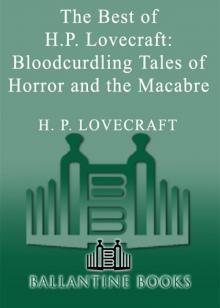 The Best of H.P. Lovecraft
The Best of H.P. Lovecraft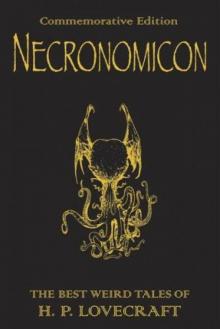 The Definitive H.P. Lovecraft: 67 Tales Of Horror In One Volume
The Definitive H.P. Lovecraft: 67 Tales Of Horror In One Volume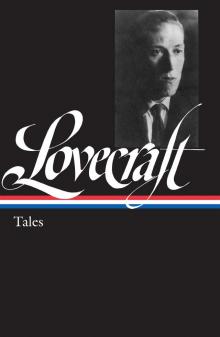 The Complete Works of H.P. Lovecraft
The Complete Works of H.P. Lovecraft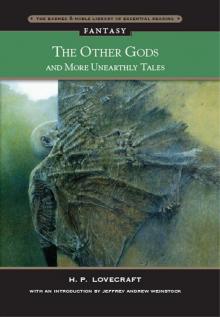 Other Gods and More Unearthly Tales
Other Gods and More Unearthly Tales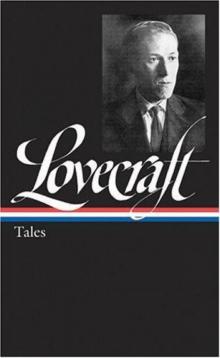 Lovecraft's Fiction Volume I, 1905-1925
Lovecraft's Fiction Volume I, 1905-1925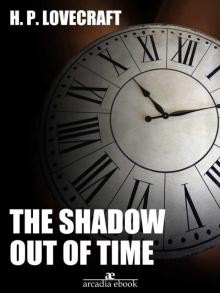 The Shadow Out of Time
The Shadow Out of Time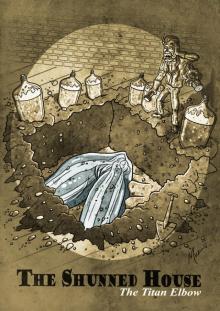 The Shunned House
The Shunned House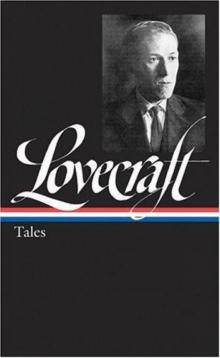 Lovecraft's Fiction Volume II, 1926-1928
Lovecraft's Fiction Volume II, 1926-1928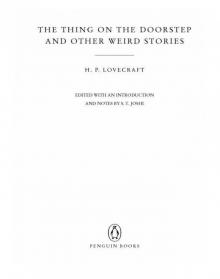 The Thing on the Doorstep and Other Weird Stories
The Thing on the Doorstep and Other Weird Stories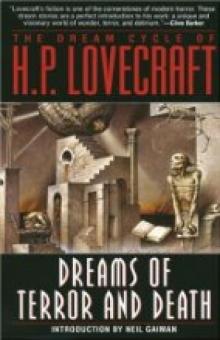 Dream Cycle of H. P. Lovecraft: Dreams of Terror and Death
Dream Cycle of H. P. Lovecraft: Dreams of Terror and Death Great Tales of Horror
Great Tales of Horror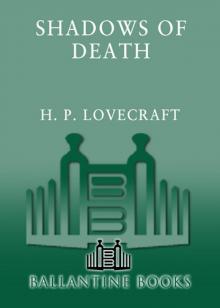 Shadows of Death
Shadows of Death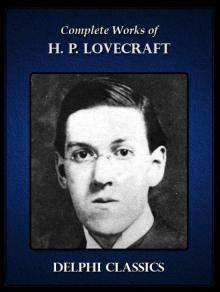 Delphi Complete Works of H. P. Lovecraft (Illustrated)
Delphi Complete Works of H. P. Lovecraft (Illustrated)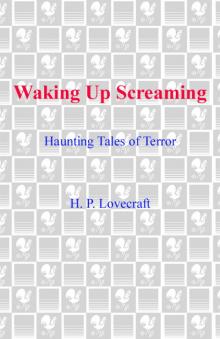 Waking Up Screaming: Haunting Tales of Terror
Waking Up Screaming: Haunting Tales of Terror H.P. Lovecraft Goes to the Movies
H.P. Lovecraft Goes to the Movies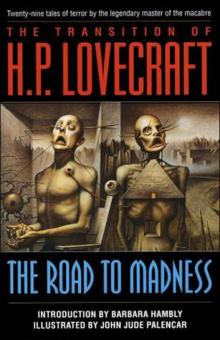 The Road to Madness
The Road to Madness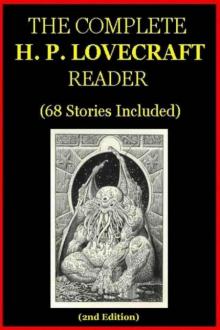 The Complete H.P. Lovecraft Reader (68 Stories)
The Complete H.P. Lovecraft Reader (68 Stories)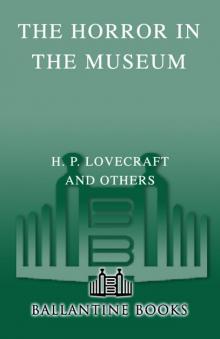 The Horror in the Museum
The Horror in the Museum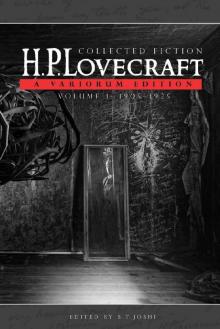 Collected Fiction Volume 1 (1905-1925): A Variorum Edition
Collected Fiction Volume 1 (1905-1925): A Variorum Edition Lovecrafts_Fiction, vol.I_1905-1925
Lovecrafts_Fiction, vol.I_1905-1925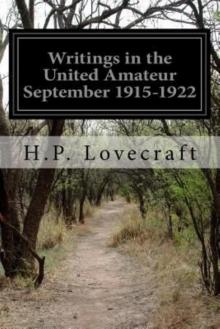 Writings in the United Amateur, 1915-1922
Writings in the United Amateur, 1915-1922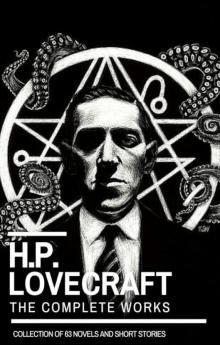 H.P. Lovecraft: The Complete Works
H.P. Lovecraft: The Complete Works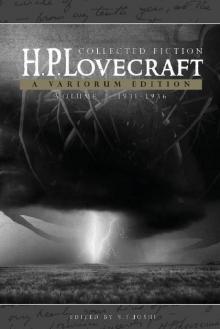 Collected Fiction Volume 3 (1931-1936): A Variorum Edition
Collected Fiction Volume 3 (1931-1936): A Variorum Edition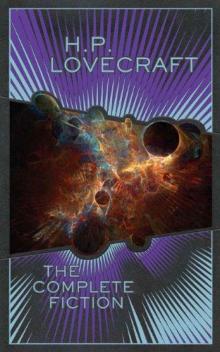 H.P. Lovecraft: The Complete Fiction
H.P. Lovecraft: The Complete Fiction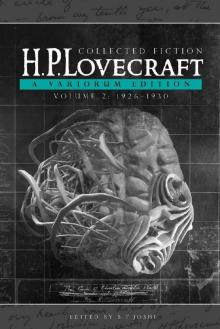 Collected Fiction Volume 2 (1926-1930): A Variorum Edition
Collected Fiction Volume 2 (1926-1930): A Variorum Edition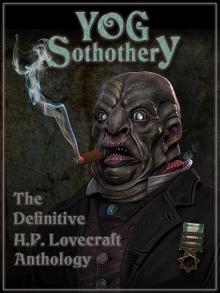 Yog Sothothery - The Definitive H.P. Lovecraft Anthology
Yog Sothothery - The Definitive H.P. Lovecraft Anthology The Complete H.P. Lovecraft Collection (Xist Classics)
The Complete H.P. Lovecraft Collection (Xist Classics)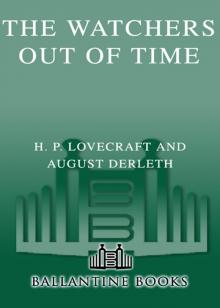 The Watchers Out of Time
The Watchers Out of Time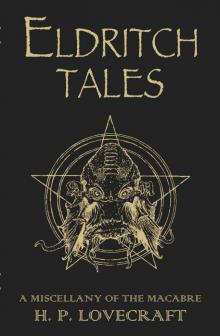 Eldritch Tales
Eldritch Tales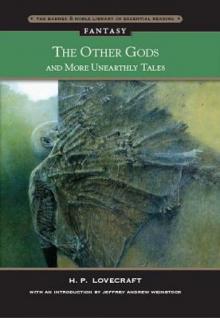 The Other Gods And More Unearthly Tales
The Other Gods And More Unearthly Tales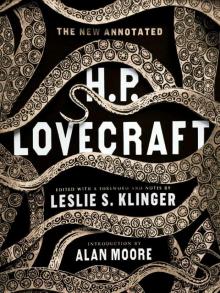 The New Annotated H. P. Lovecraft
The New Annotated H. P. Lovecraft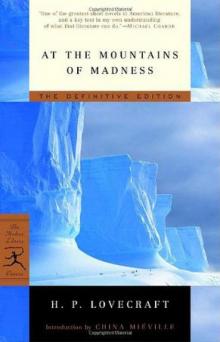 At the mountains of madness
At the mountains of madness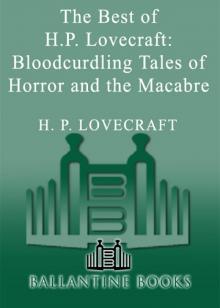 Bloodcurdling Tales of Horror and the Macabre
Bloodcurdling Tales of Horror and the Macabre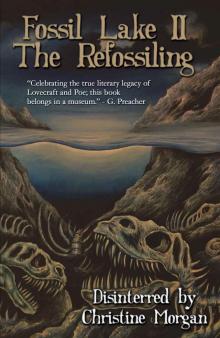 Fossil Lake II: The Refossiling
Fossil Lake II: The Refossiling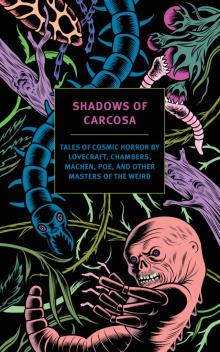 Shadows of Carcosa: Tales of Cosmic Horror by Lovecraft, Chambers, Machen, Poe, and Other Masters of the Weird
Shadows of Carcosa: Tales of Cosmic Horror by Lovecraft, Chambers, Machen, Poe, and Other Masters of the Weird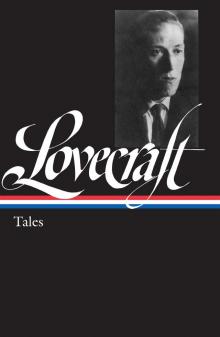 H. P. Lovecraft
H. P. Lovecraft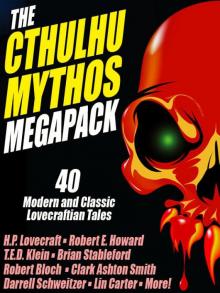 The Cthulhu Mythos Megapack
The Cthulhu Mythos Megapack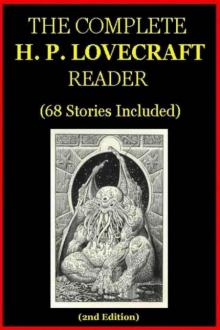 The Complete H. P. Lovecraft Reader (2nd Edition)
The Complete H. P. Lovecraft Reader (2nd Edition)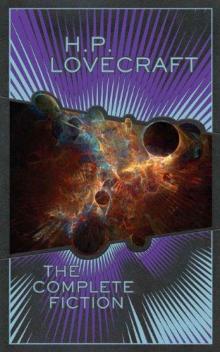 The Complete Fiction
The Complete Fiction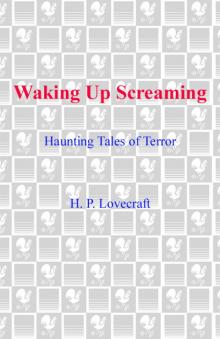 Waking Up Screaming
Waking Up Screaming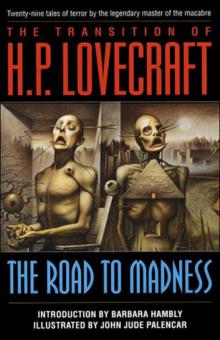 Transition of H. P. Lovecraft
Transition of H. P. Lovecraft![[1935] The Shadow Out of Time Read online](http://i1.bookreadfree.com/i2/04/12/1935_the_shadow_out_of_time_preview.jpg) [1935] The Shadow Out of Time
[1935] The Shadow Out of Time The Horror Megapack
The Horror Megapack